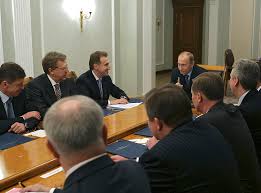
Introduction
Vladimir Putin, the President of Russia, has emerged as a pivotal figure in global politics over the last two decades. His leadership has not only shaped Russia’s internal affairs but also significantly influenced international relations and geopolitical dynamics. Understanding Putin’s strategies and policies is crucial for comprehending the current state of global affairs, especially as tensions rise in various regions around the world.
Recent Events and Actions
In recent months, the world has observed several actions taken by Putin that have raised eyebrows and prompted discussions among international leaders. The ongoing conflict in Ukraine, which began in 2014 with the annexation of Crimea and escalated with the full-scale invasion in February 2022, reflects Putin’s aggressive foreign policy approach. The Kremlin’s justification for these actions often hinges on the narrative of protecting Russian-speaking populations and countering NATO’s expansion efforts.
Moreover, the war in Ukraine has drawn a plethora of sanctions from Western countries, leading to a significant impact on the Russian economy. As a countermeasure, Putin has sought to strengthen ties with non-Western nations, particularly in Asia and the Middle East, positioning Russia as a vital player in a multipolar world.
Geopolitical Strategies
Putin’s administration has increasingly emphasized military modernization and expansion as part of its national security strategy, with increased defense spending and a focus on advanced technologies. Additionally, numerous military exercises and arms deals have taken place, signaling a shift towards reinforcing Russia’s influence beyond its borders.
Furthermore, the Kremlin’s involvement in the Syrian civil war and the backing of regimes that align with its interests demonstrate a broader strategy of maintaining influence in strategic regions. Putin’s utilization of energy resources as a geopolitical tool, particularly in Europe, further illustrates his approach to international power dynamics.
Conclusion
As Vladimir Putin continues to exert his influence on global affairs, the ramifications of his actions remain significant for world leaders and populations alike. The trajectory of Russia’s foreign policy under Putin is poised to influence international relations for years to come, particularly as global tensions persist. Understanding his calculated approaches and leveraging of geopolitical opportunities is essential for anticipating the future landscape of international politics. Observers and analysts will need to monitor developments closely, as the implications of Putin’s strategies extend far beyond Russia’s borders, impacting security, economy, and diplomatic relations globally.




